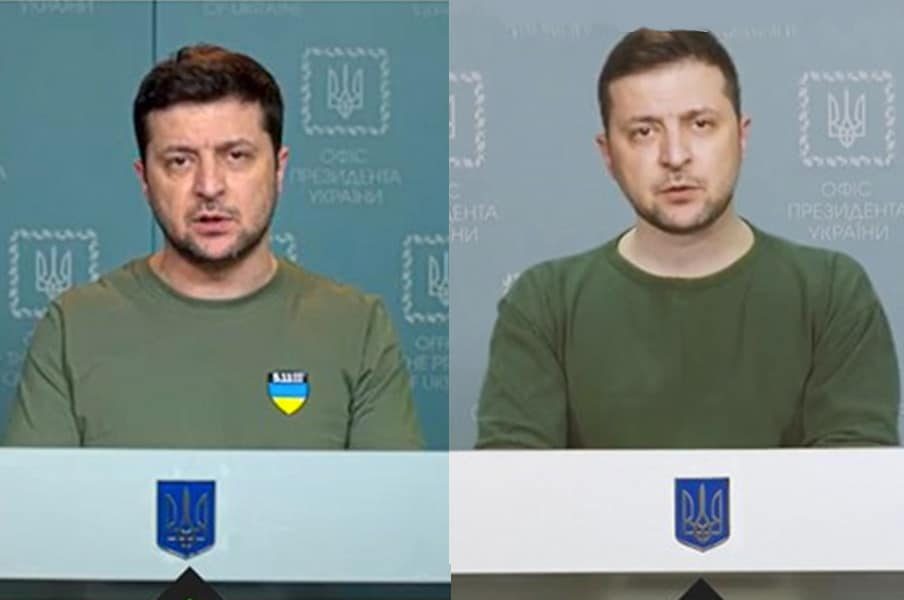Despite being brandished as “absolutely terrible” and “amateur” by experts, a recent deepfake video of Ukrainian president Volodymyr Zelensky surrendering to Russia is a further sign that Russia is gearing up for an information and cyberwar.
The news website Ukraine 24 was hacked on March 15, where the attackers circulated the fake and manipulated video. This video was fairly obvious to most visitors of the website, with the inconsistencies between the skin tone on Zelensky’s neck and face, and the pixilation around his head being clear pointers.
“Lay down your arms”: Debunked
In this video, Zelensky’s voice was manipulated to read:
“Dear Ukrainians, dear defenders! Being president was not so easy. I have to make difficult decisions. At first, I decided to return Donbas. And now I decide to say goodbye to you. I advise you to lay down your arms and return to your families. You should not die in this war. I advise you to live. And I will do the same.”
Source of Translation: FRANCE 24 English
The video takes the form of a televised address in front of a podium – a format Ukrainians have become familiar with over the past few weeks. However, deepfake expert Mounir Ibrahim from Truepic calls the deepfake “poorly done”. “You can clearly see the difference — this is not the best deepfake we’ve seen, not even close.”.
Debunking this video, Zelenskyy released a video response through his Telegram channel stating:
“If I can offer someone to lay down their arms, it’s the Russian military. Go home. Because we’re home. We are defending our land, our children & our families”.
Given that Zelenskyy’s refusal to surrender and his ability to rally his Ukrainian resistance has been one of Putin’s biggest challenges in his invasion of Ukraine, it’s no surprise pro-Putin attackers are turning to disinformation and cybercrime.
“The Tip of the Iceberg”
Whilst there’s no evidence directly tying the hackers to Putin’s government, some experts are claiming this deepfake is the first of many attacks yet to come from Russian aggressors as part of a misinformation campaign.
Harid Farid – a professor in digital media forensics at the University of California, Berkeley, told NPR that this video is “the tip of the iceberg”.
He goes on to say that “it pollutes the information ecosystem, and it casts a shadow on all content, which is already dealing with the complex fog of war. The next time the president goes on television, some people might think, ‘Wait a minute — is this real?’
It reveals one of Putin’s most dangerous weapons: misinformation and fake news. From fake fact checks to claims of neo-Nazism and fabricating CNN headlines, Pro-Putin forces are making it increasingly difficult for people to tell what’s true and what’s fabricated in this modern media landscape.
So far, people outside of Russia have been able to tell the difference between Putin’s clear misinformation and fact. But what if a more advanced deepfake comes along? What if the Pro-Putin media machine becomes more careful and more nuanced in their fake news? Both Western governments and Zelenskyy’s regime are bracing for the potentially catastrophic consequences of Putin gaining afoot in this information war.
Like what we have to say? Sign up to subscribe to email alerts and you’ll never miss a post.










